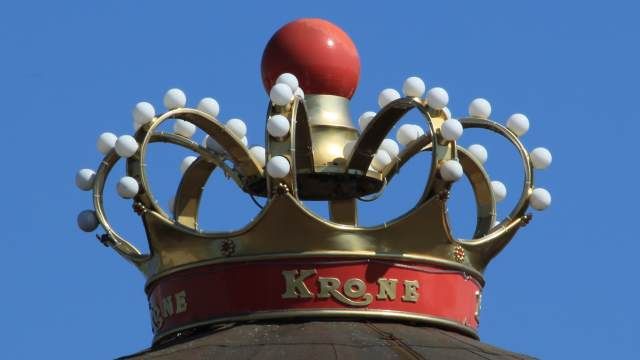In the hit series ‘Game of Thrones’, one of the underlying themes of the first few seasons is that winter is coming. Winter in the show, however, is measured in years and not months. An economic winter is probably coming to Germany and the European Union (EU) soon, and it will be measured in years as well.
Some smaller countries in the EU have already felt the cold winds of austerity, blown in off the Teutonic steppes of Germany. A vicious circle has been created. Cuts to social programs have helped force economies to contract, which have lessened tax revenues, causing more unemployment and pain for the people. Another round of austerity is called for by Berlin and the European Central Bank (ECB)-read Germany-and the whole process is begun anew.
France has even begun to feel the sting, but may thumb their collective nose at austerity. They recognize that in times of economic malaise, spending <i>increases </i>do more quicker to relieve the pressure than cuts. Businesses in France want more flexibility to lay off workers, but the strong ideas of workers’ rights are imbedded in the French psyche and will be difficult to dislodge. The French are often portrayed as a people who enjoy a good work strike for the sake of it. Let’s hope they continue.
In the 1920s during the Weimar Republic, a loaf of bread in Germany cost a wheelbarrow of money on Monday and a truckload by Thursday. I have never sat in on any history lessons at a local school here in Munich but apparently this idea has been seared into the minds of all Germans at a most impressionable age. Germans can be the most frugal fellows during booms, and hoarders during busts. And that’s putting it nicely.Paper Mark Values
I will not go so far as to say that economically the Germans suffer from Münchausen syndrome by proxy, like some on the far, far left of other EU countries have intimated. But it is out there.
If the EU’s economy completely tanks, or worse still, the EU dissolves, Germany’s currency will skyrocket in value and it’s exporting empire will crash as it will be unable to sell anything to anybody from this planet. Germans rarely spend money domestically on anything other than the most necessary items, so there would be little relief for the economy there.
A few months ago I recall reading in a British newspaper of how the Germans had fought for a year longer at the end of World War II than the Brits would have if faced with the same predicament. And it was not only because of a crazed dictator in a bunker in Berlin. The article stated that England would have sued for peace in the best terms available at the end of 1943 or the beginning of 1944.
After Allied bombings destroyed most of the trains, then the trucks, cars, motorcycles and even bikes, Nazi Germany still had postal service better than more than half of the world today. If a shoemaker’s shop was blown up, he simply made a sign and moved across the street and carried on about his business. History shows us that Germany will carry on until there are no more trenches to hold.
The tenacity of the Germans is a very commendable characteristic, but unfortunately, economically, it may be their undoing. The rest of the EU will be collateral damage if they don’t have the good sense to get off the current economic track.
Yes, winter is coming.
BLOG COMMENTS POWERED BY DISQUSWorth checking out
- Casino En Ligne Retrait Rapide
- Casino En Ligne Fiable
- Migliori Casino Online
- Casinos Not On Gamstop
- 해외 홀덤사이트
- Casino Non Aams
- Casinos Not On Gamstop
- Casino Sites Not On Gamstop
- UK Casinos Not On Gamstop
- Casino Not On Gamstop
- Best Non Gamstop Casinos
- Gambling Sites Not On Gamstop
- UK Casino Not On Gamstop
- UK Casinos Not On Gamstop
- UK Casino Not On Gamstop
- Non Gamstop Online Casinos
- Casinos Not On Gamstop
- Non Gamstop Casinos
- Casino Non Aams
- Slot Sites UK
- UK Online Slot Sites
- Online Casino Zonder Cruks
- Non Gamstop Casino UK
- Casino Not On Gamstop
- UK Casinos Not On Gamstop
- Casino Online Non Aams
- Casino Online Italia
- Meilleur Casino En Ligne Belgique
- Non Aams Casino
- Online Casino Visa
- Nouveau Site De Poker En Ligne
- KYC 인증 없는 카지노
- Meilleur Casino En Ligne Français
- Meilleur Casino En Ligne
- Casino Italia Non Aams
- Meilleur Casino En Ligne
- Casino En Ligne
- Meilleur Casino En Ligne France
Popular
Latest
- A Letter From France: “Not In My Name” by Kim Terrell (News) 26 Feb 2015
- Christmas Winter Market Opens at the Munich Airport (News) 27 Nov 2014
- Controversy Erupts Over Holocaust Street Plaques (News) 10 Dec 2014
- Cookies, Christmas, Cookies, Christmas (Life) 28 Nov 2014
- From Tusks to Trapezes: Munich’s Circus Krone (News) 13 Feb 2015







